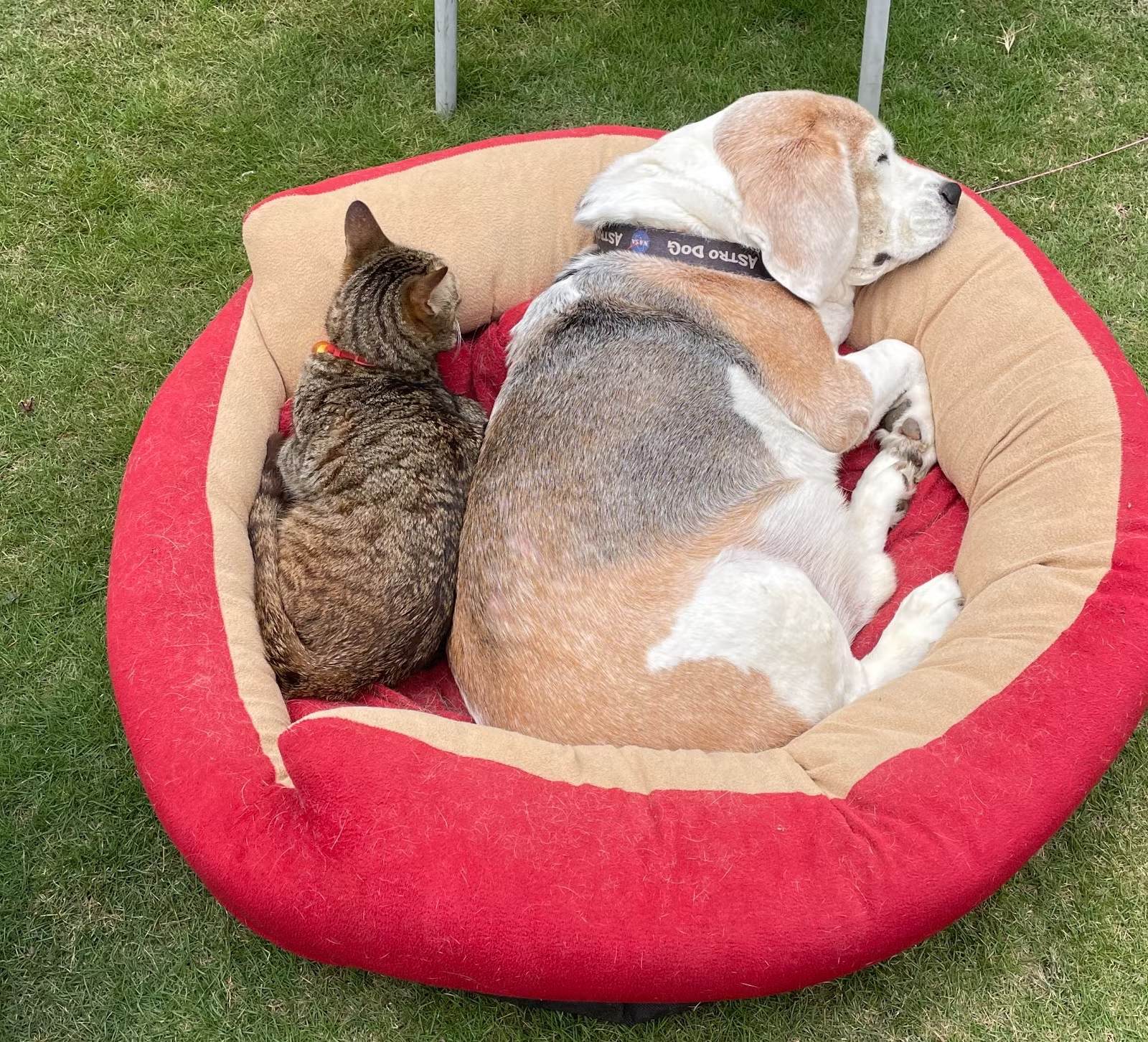Human Vegetables and Fruits that are safe For Dogs

Safe Human Foods For Dogs
While many human foods are safe for your dog, most are unsafe and potentially poisonous. Please read our article on Unsafe human food for pets.
Below could be a list of human foods that are safe for dogs to eat in moderation.
- Eggs: Salmonella and biotin deficiency are two things to be cautious when feeding your dog raw eggs. Most vets will recommend giving your dog a cooked egg over a raw egg. Eggs are a superb source of protein and have a bunch of vitamins for your pup. Don’t worry about cooking the egg in butter, oil, salt, pepper or other additives, your dog doesn’t need those things, and that they are often harmful to them
- Curd/ Yoghurt: High in calcium and protein. But make sure to only choose yogurts that do not contain artificial sweeteners or added sugars. Yogurts with active bacteria can act as a probiotic and are good for your dog’s digestive system.
- Fruits: Make sure to peel and slice the fruit first ( if required) and remove seeds and pith!!!
- Apple slices: Apples are a good source of fiber as well as vitamin A and C. Apples also help to clean residue off a dog’s teeth, which helps to freshen her breath. DO NOT FEED THE SEEDS
- Bananas: Bananas are high in potassium, vitamin B6, and vitamin C and good for pets
- Blueberries: Blueberries are a great source of vitamins, minerals, antioxidants, and more. This fruit is a healthy snack for both large and small dogs.
- Cantaloupe: Cantaloupes will help your canine’s eyesight. Additionally, they are loaded vitamin A and lots of beta carotene, which helps reduce the risk of cancer and prevents cell damage. It’s also a good source of vitamins B-6 and C, fiber, folate, niacin and potassium. Just avoid feeding your dog the rind of the cantaloupe, as it can cause intestinal damage.
- Cranberries: These tiny fruits can provide your dogs with benefits like a high dose of vitamin C, potassium, and fiber. They have low caloric content and have properties that battle inflammation. Cranberries reduce tartar and plaque build-up, improve bladder health, and lower risks of gastrointestinal diseases.
- Mangoes: The main, fruit part of a mango, is a great source of vitamin A, B6, C and E and it’s safe for dogs.
- Oranges: While some dogs may not enjoy the acidic taste of this citrus fruit, the fruit of oranges is safe and full of vitamin C, while also packing a punch of potassium and fiber.
- Peaches: Peaches are loaded with plenty of vitamins and minerals that are good for your dog’s health. They contain vitamins A and C, and they are low in calories and high in fiber. As a source of antioxidants, they can help ward off cancer and boost the immune system. They also help improve the functions of the liver and kidneys.
- Pears: Pears are a great snack because they’re high in copper, vitamins C and K, and fiber. It’s been suggested that eating the fruit can reduce the risk of having a stroke by 50 percent.
- Pineapples: A few chunks of pineapple is a great sweet treat for dogs, as long as the prickly outside peel and crown are removed first. The tropical fruit is full of vitamins, minerals, and fiber. It also contains bromelain, an enzyme that makes it easier for dogs to absorb proteins.
- Raspberries: Raspberries are fine in moderation. They contain antioxidants that are great for dogs. They’re low in sugar and calories, but high in fiber, manganese, and vitamin C. Raspberries are especially good for senior dogs because they have anti-inflammatory properties, which can help aging joints. However, they do contain small amounts of xylitol, so limit your dog to less than a cup of raspberries at a time.
- Strawberries: Strawberries are full of fiber and vitamin C. Along with that, they also contain an enzyme that can help whiten your dog’s teeth as he or she eats them. They contain sugar, so be sure to give them in moderation.
- Watermelon: If Lycopene that you’re looking to add to your dog’s diet, then watermelon is your best source. Has lots of vitamin A, B-6 and C, as well as thiamine. The seeds should be removed as many seeds contain a trace amount of arsenic which is poisonous
- Vegetables: Vegetables make great low-calorie snacks and useful training tools. In fact, you'll be able to give your dog slices of carrots as a treat and a healthier alternative to other training treats.
Keep one's distance from canned and pickled vegetables as they contain an excessive amount of salt.
Vegetables below are safe for dogs to ingest:
- Asparagus: When cut into bite size pieces, asparagus for dogs makes a healthy veggie option because of vitamin K, A, B1, B2, C and E, along with the folate, iron, copper, fiber, manganese and potassium that’s found in them.
- Broccoli: Only in very small quantities and is best served as an occasional treat. It is high in fiber and vitamin C and low in fat. However, Broccoli florets contain isothiocyanates, which can cause mild-to-potentially-severe gastric irritation in some dogs. Furthermore, broccoli stalks have been known to cause obstruction in the oesophagus.
- Brussels sprouts: Your dog should be eating brussels sprouts for their vitamins K and G, manganese, folate, fiber, potassium and vitamins A, B1 and B6.
- Carrots: Carrots are an excellent low-calorie snack that is high in fiber and beta-carotene, which produces vitamin A. Plus, crunching on this orange veggie is great for your dog’s teeth
- Celery: In addition to vitamins A, B, and C, this crunchy green snack contains the nutrients needed to promote a healthy heart and even fight cancer. As if that wasn’t enough, celery is also known to freshen doggy breath.
- Cucumber: Cucumbers are especially good for overweight dogs, as they hold little to no carbohydrates, fats, or oils and they can even boost energy levels. They’re loaded with vitamins K, C, and B1, as well as potassium, copper, magnesium, and biotin.
- Green beans: Green beans are good for dogs because of their omega-3 fatty acids and vitamins A, C, and K. They’re also a good source of calcium, copper, fiber, folic acid, iron, niacin, manganese, potassium, riboflavin and thiamine, as well as beta carotene
- Peas: Peas have several vitamins, minerals, and are rich in protein and high in fiber.
- Pumpkin: Good source of fiber as well as beta-carotene/vitamin A. It can help keep the GI tract moving and can aid with digestive issues.
- Spinach: High in iron (with almost twice as much of it as most other sources), spinach is a particularly good option for your dog since it helps fend off inflammatory and cardiovascular issues, along with cancer.
- Sweet potatoes: A great source of vitamins E, A, B-6 and C, as well as calcium, iron, folate, potassium, copper, thiamine and iron,
- Lean Meat: Lean meat includes meat without bones that have had excessive fat removed. While feeding chicken and turkey, the fatty skin should be removed. Lean meat includes the meat from chicken or turkey and provides a tasty treat for your dog plus a decent source of protein.
- Oatmeal: A great source of soluble fiber, which can be especially beneficial to senior dogs with bowel irregularity issues. It is also a great alternate grain for dogs allergic to wheat. Make sure to cook oatmeal before serving it to your dog. Do not add any sugar or flavor additives.
- Peanut butter: A favorite treat of many canines. Not only is it a good source of protein, but it also contains heart healthy fats, vitamin B, niacin, and vitamin E. Stuff peanut butter into a Kong to keep your dog busy for hours. Choose raw, unsalted peanut butter. NOTE: Be absolutely sure that you’re not using sugar-free or “lite” peanut butter that has artificial sweeteners, particularly xylitol, as these substances are incredibly toxic to dogs.
- Salmon: A good source of omega 3 fatty acids, which are responsible for keeping your dog’s coat healthy and shiny, as well as supporting your dog’s immune system. Feed your dog cooked salmon, add salmon oil to her food bowl, or slip him some of your unwanted fish skins.
- White Rice: Cooked rice is a common recommendation for a dog with an stomach upset. Generally boiled white chicken and rice are used as nourish a dog that's having trouble getting any nutrition from food as a result of illness. However do not use too much of rice
- Human-Grade, Fresh pet-food: While not exactly human food, there are fresh dog foods available for delivery to the doorstep that are made of human-grade ingredients. Check locally
If I have missed any additional information or food that is viable for dogs, please do put down in the comments section.
Editor
Pebloo

